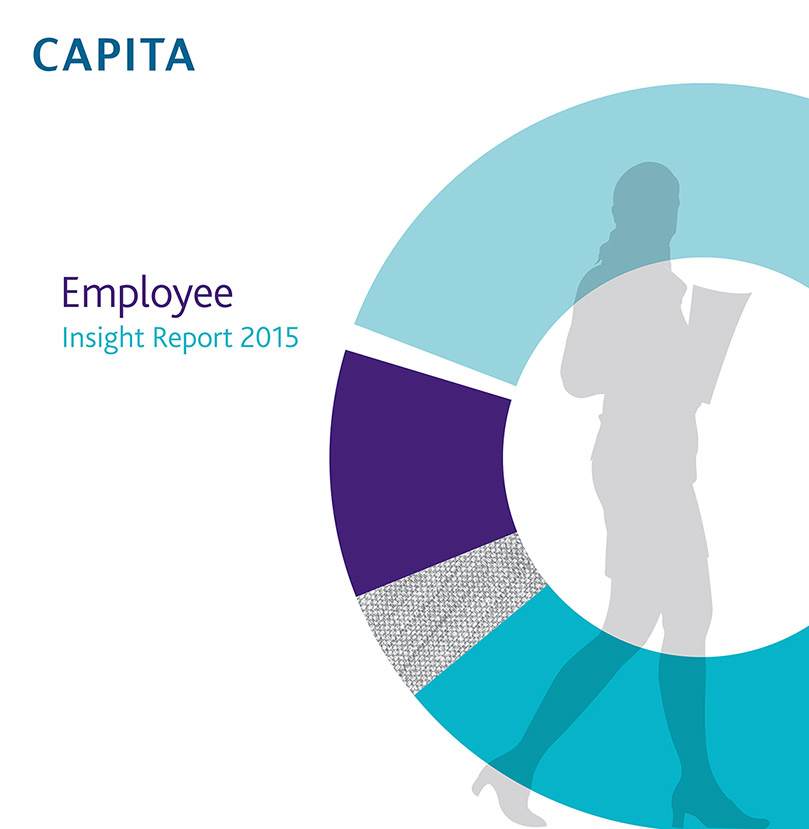Research: Capita Employee Benefits Employee Insight Report 2015

When combined these three themes make clear the challenges facing benefits professionals and those who advise and support them over the coming years: the 21st Century workforce is incredibly diverse. And its diversity is, in itself, complex: while we can gather employees into groups along the lines of gender, generation or cultural background, these simplify and are, necessarily, estimations of underlying communities.
Accordingly, we believe this Employee Insight report serves as a first step on a journey. It is a bellwether and also perhaps an early warning: benefits are facing a key challenge, the challenge of relevance in the modern workplace.
Our financial outlook is improving
When looking at the emerging themes themselves, an initial positive trend is the financial outlook of employees. While it would be a stretch to suggest that employees are feeling financially comfortable, it does seem that the benefits of the slow economic recovery are beginning to permeate the workforce.
A worrying number are still financially vulnerable with very little in the way of savings but generally there is a tentative shift of confidence: either in the immediate sense of how well off people feel this year compared to last or in terms of their degree of optimism for how they will feel next year compared to this.
The impact of this improved outlook is a shift in expenditure priorities away from the defensive and primarily towards life’s little luxuries but with at least a small nod towards the importance of some longer term savings.
A fall in appreciation and engagement
However, while there may be this appreciation of the importance of some form of financial planning, this is accompanied by a worrying sense of disengagement with one of the primary access points for such action: the benefits packages being offered by their employers.
Our survey showed a consistent trend: employees expressed less appreciation of the benefits being offered through the workplace. From core benefits such as pensions and life assurance to the insurance-related products that are more typically acquired voluntarily.
There may be a number of factors behind this. Employers offering quite limited, strait-jacketed benefits packages with little flexibility will find that they will struggle to engage employees increasingly used to choice and whose demands and needs are increasingly diverse.
Equally though, those who do offer greater flexibility cannot rely on this alone. To take from the 1989 Kevin Costner film ‘Field of Dreams’, employers cannot fall into the trap of believing that “if you build it, they will come.”
Poor benefits communication, whether in terms of content, media or timing, can and will undermine even the best benefits strategy.
The impact of reform
One rather significant event that occurred between this and the preceding Insight survey also demands improved employee education, communication and engagement. Our 2014 views were gathered in the months of January and February: prior to the radical changes to pensions announced in the Chancellor’s Budget presented to Parliament on 19 March 2014.
This radical change, introducing new pension freedoms, represented the final chapter of the wide-ranging pension reforms implemented or introduced by the Coalition Government.
A reform programme that incorporated significant changes to the future of state pensions, the end of contracting out, amendments to the annual and lifetime allowances, the new ‘pot follows member’ regime, a cap on charges and the removal of commission, a debate on new pension structures under the guise of Defined Ambition and most recently the consultation on the creation of a secondary market for annuities to allow those already retired to potentially benefit from the new pension freedoms.
Add into the mix the reforms and roll-out of the automatic enrolment legislation introduced by the preceding Labour administration and it’s fair to say that the last Government was an active and radical reformer of pensions.
However, if we consider the two bookends of this reforming zeal, automatic enrolment and pension freedoms, it is hard not to remark on their contrasts; particularly in terms of its expectation of financial behaviour.
Automatic enrolment was the big project, perhaps even social experiment, of the Department of Work and Pensions (DWP). Its roots lie in the ‘nudge’ concept: that when faced with complex choices the natural human instinct is to vacillate and procrastinate. In essence, the theory suggests that analysis paralysis is a very real behavioural characteristic and that individuals will either put off challenging decisions or will fail to act when faced with them. Automatic enrolment uses this inertia to positive effect by making a ‘good’ decision on behalf of the individual and forcing them to make an active decision to countermand it.
It has to be said that currently the theory is holding good. Automatic enrolment has been more successful than the doubters predicted. Opt-out rates have been low. The trend of falling scheme membership has been well and truly reversed and participation sits comfortably higher than the figure back in 1997. Inertia has been a positive force.
There are potential downsides to this strategy of participation by default. A pension approach founded on disengagement may only take us so far. Membership by default into a default investment strategy funded at default contribution rates is a good start but at some point there will be a need for either engagement or further state intervention. The current minimum contribution rates will really only generate a meaningful replacement income for the younger employee who remains lower paid throughout their career, for most others the outcome will be less satisfactory.
From disengaged to activist
In a sense, this depends on our outlook of the purpose of a pension. The new freedoms have turned many suppositions on their head. A pension has ceased to be solely for providing an income in retirement; it is now a savings vehicle that can achieve this purpose but is also available to be accessed in a variety of forms, both capital and income, as an individual approaches their retirement age and beyond.
In terms of behavioural finance, the new freedoms are diametrically opposed to automatic enrolment. One reform assumes a disengaged audience; the other demands a high degree of active participation in complex and critical decision-making.
As such, the latest reforms represent as big a challenge to employers as automatic enrolment. Employees do not suddenly become engaged and informed. A shift will be required over a considerable period of time to equip employees with the means to cope with the burden of greater choice.
The workplace is an obvious home for financial education. Employers have not always embraced this role of educator, but it seems increasingly likely that they will have to form part of the solution to the current malaise of financial literacy among the general population.
Another way of considering and describing the different nature of these reforms is that automatic enrolment leans on our sense of conformity and community while the pension freedoms are founded on the rights of the individual.
In search of the individual
Individuality is the final emerging theme of this Insight report and brings us back to where we started: diversity in the workplace.
In the 1950s there was a considerable amount of study into the relationship between the human instincts for individuality, conformity and community. In part this was an attempt to rationalise how the Roaring Twenties with its strong expression of individualism was followed by the rise of totalitarian regimes across Europe.
In essence, these studies suggested that while we strive for individuality, our core instincts are founded in the need to be part of a greater body and to conform to its norms. This tribal predisposition could manifest itself in our association with our country, political movements and religious beliefs or indeed at a more immediate level through the workplace, clubs or support for a sporting team.
However, some have argued that the current revolution in technology is fundamentally changing our way of life and in so doing changing the relationship between individuality and community. Social media is at its heart the creation of virtual communities.
The use of the hashtag on Twitter is about joining wider conversations and forming bonds with other users, likewise the building of friends and connections on Facebook and LinkedIn is all about forming groups and association.
And within these communities lie conformity; whether through the use of community language such as ‘LOL’ or community behaviour as seen in the rise of the ubiquitous ‘selfie’. Technology may be allowing us to have our cake and eat it: communities that embrace at least a degree of individuality.
The crux of the challenge
Whatever the merits of this philosophical and psychological debate, what rings clear from our respondents is that they want to be treated as individuals in the context of benefits and the workplace. They do not wish to conform and want empowerment and choice and, at the same time, seem to feel a lesser sense of community within the workplace.
Perhaps this is the ultimate message from our latest Insight report and the greatest challenge for employers: how to create employee loyalty through a sense of community that also recognises and addresses the diversity of its membership.
The first step for employers will be to make a conscious effort to gain a more complete understanding of the demographics particular to their own workforce and build their strategies accordingly.
Supplied by REBA Associate Member, Capita Employee Solutions
UK leader in technology-enabled business process management and outsourcing solutions.







